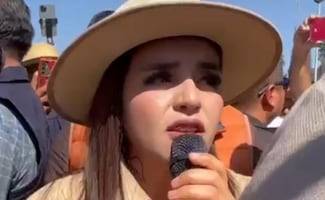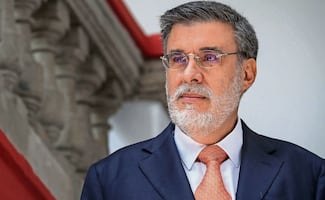Más Información

Anticorrupción pide denuncias formales tras señalamientos de Julio Scherer Ibarra; “la narrativa no es suficiente”, advierte

Grecia Quiroz presenta denuncia contra Leonel Godoy, Raúl Morón e Ignacio Campos; los acusa de participar en asesinato de Carlos Manzo
Drug trafficking
networks are wide and diverse and hide behind front companies to introduce ill-gotten money into the legal financial system. Thus, the United States authorities have always laid their odds on investigating bank accounts of suspicious firms and companies in order to fight drug trafficking. The Office of Foreign Assets Control of the U.S. Treasury Department is in charge of such a task.
Yesterday, this Office made known a report – as it frequently does – stating it has sanctioned 22 Mexican individuals and 42 legal entities for “providing support to the narcotics trafficking activities of Raúl Flores Hernández.” The mention of two celebrities in this list caused a real stir: football player Rafael Márquez and singer Julión Álvarez . According to the American office, both have significant connections with Flores Hernández and have been used as front men for the criminal organization. The sanctions in question freeze all assets in the United States of the individuals and companies mentioned, in addition to prohibiting American citizens from establishing business relations with them.
The football player and the singer have talked about the issue, although both in their own way. The former decided to appear before the Office of the Mexican Attorney-General (PGR) and gave a statement to the media claiming his innocence, while the latter went to social media to upload a video denying the accusations. They are not being investigated in Mexico, but the least we can ask Mexican authorities is to make inquiries so the case can be defined. The U.S. Treasury Department may be mistaken, after all.
One of the challenges Mexico faces is precisely money laundering . Our country is vulnerable, not only because of the drug trafficking organizations operating in national territory, but also due to tax evasion, informal economy, and corruption.
Just four years ago, a law was adopted to prevent money laundering, yet results are lagging behind the amount of information gathered by the U.S Treasury Department. Usually, American authorities are several steps ahead in this matter, even when dealing with Mexican criminals. Experts have criticized the little progress of Mexico on money laundering and the surveillance failures in the financial networks of kingpins and drug lords.
The power of criminal organizations would certainly not be the same if Mexico had tougher and more effective controls regarding money laundering. EL UNIVERSAL has documented, for instance, that 14 of the 95 companies linked to infamous drug lord Joaquín “El Chapo” Guzmán had business relationships with the Mexican Government.
The information shared by the U.S. Treasury Department is evidence of the weak investigation capacity of authorities this side of the border. When will we begin to see the results of the fight against money laundering?
am
Noticias según tus intereses
[Publicidad]
[Publicidad]












